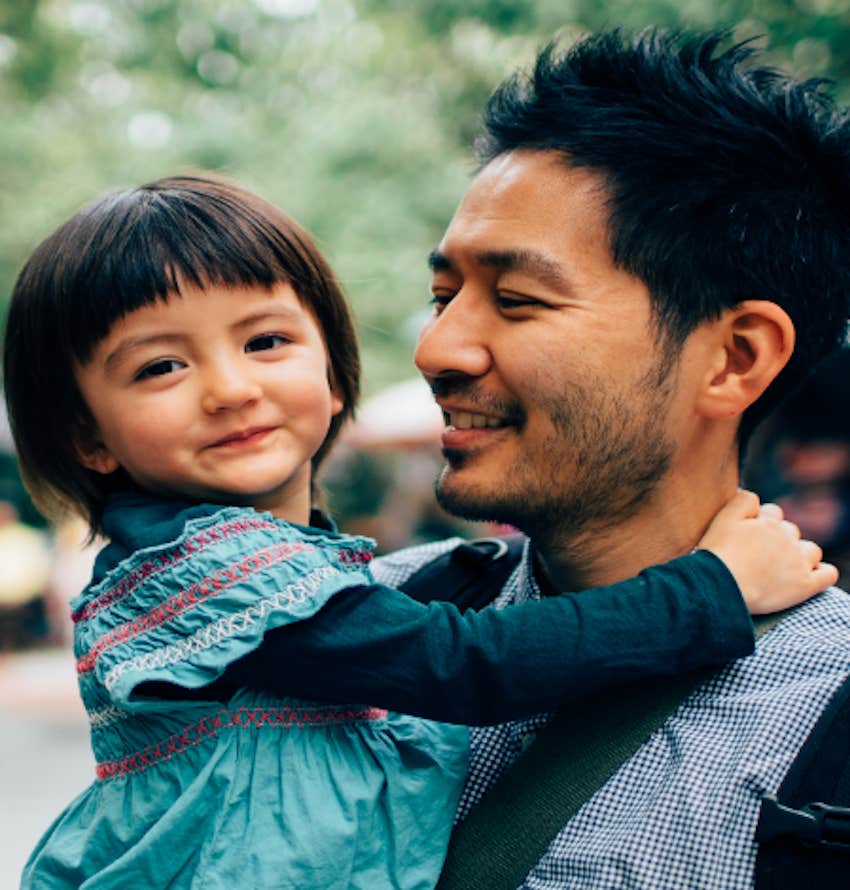5 Silent Promises The Healthiest Co-Parenting Exes Make
How to know what you can control — and what you cannot — with your your co-parenting ex.
 Hrant Khachatryan | Unsplash
Hrant Khachatryan | Unsplash In a perfect world, after divorce, your children would only know that life is more peaceful with two homes. Yes, it may be hard for them to miss the parent they are not with, but they will feel secure that time with the other parent is coming soon.
That's it. That's how it should go. Co-parenting is all about the children — and not your relationship with your ex.
So, how does that happen? And can it happen if don't get along with your former partner? Fortunately, the answer is yes. Because you can make these changes with almost no conflict with your ex.
Here are five silent promises the best co-parents make
1. Model the best behavior
"I am the model I want my children to follow. Therefore, everything I do and say demonstrates who I want my children to strive towards becoming."
2. Communicate collaboratively
"I communicate with my ex in the way I wish for them to communicate with me. I choose collaboration and conversation, over conflict and acrimony."
3. Focus on children's best interest
"I focus on my children and what keeps them healthy — physically, mentally, and emotionally. That includes doing what is in their best interest first."
4. Attend to what your ex does well
"I turn my attention from what I don't like about my ex to what they do well for the children. It's about the kids, not what my issues are with my ex."
5. Focus on age-appropriate protection
"I allow my children to enjoy their childhood and ensure they're only concerned with age-appropriate thoughts, feelings, and actions. I protect them from being pawns, messengers, or casualties of my divorce."
Though it's not always easy, children need to know, that they are more important than any conflict between their parents.
Making sure they feel safe and that you are attuned to their needs is what effective, conscious co-parenting is all about.

Photo via Getty
When you co-parent well, you eliminate exposing the children to adult relationship issues.
They know Mom and Dad are not together and choose to live apart. Your job is to let them know that you both love them and will do all you can to keep their lives as normal as possible. No details are required.
Not only do they not need details about the split-up, but you risk jeopardizing their relationship with their other parent when you share them. That's not fair to the kids! They will have questions. Answer them in the most age-appropriate way (for their ages, not yours) to help them understand the most general issues. No specifics.
Children have enough upset to contend with when parents separate.
It's enough to deal with moving, losing time with their friends, missing the non-custodial parent, feeling uncertain about what's happening, and not having the right things at the right house. These are kid concerns.
Children do not and should not be hearing about adult issues. They should never hear one parent say anything negative about the other, directly or within earshot.
In California, every divorce settlement states that clearly, lawyers hearing that this happened can and will interpret this as parental alienation. And that's not good for anyone! Whether or not divorcing was a shared decision or something that happened to you, it's what you're doing now. It's the reality.
Not engaging your kids in the ongoing details of the conflict, the disappointments, or the anger is vital.
It's not easy, but you're an adult, and that's what a wise adult who cares about the well-being of the children would do.
You and your ex may have different parenting styles, but you both have the same goal: to raise your child to be the best they can be. Being your best self as a parent can prove difficult when everything in you wants to blame, shame, and complain. I know. I've been divorced with children, too.
You may have deep resentments after years of a rocky marriage or fresh scars that the divorce brought on. It can feel like your ex should pay dearly for it, and for a long time. Leave that to the court. You have to get your head on straight and do what is best for your kids. Ask for help to gain a healthier perspective on this.
No matter how frequently you have to remind yourself — and the difficulty of doing so — put the health and well-being of your children first.
That means your love for your children is stronger than the loathing of your partner and the divorce process.
When you keep that top of mind, you'll eventually master successful co-parenting and give your children the best emotional environment to thrive in. They deserve that.
After all, they didn't ask for a divorce!
Rhoberta Shaler, The Relationship Help Doctor, has provided urgent and ongoing care for relationships in crisis for more than 30 years. She also hosts the Save Your Sanity Podcast.

